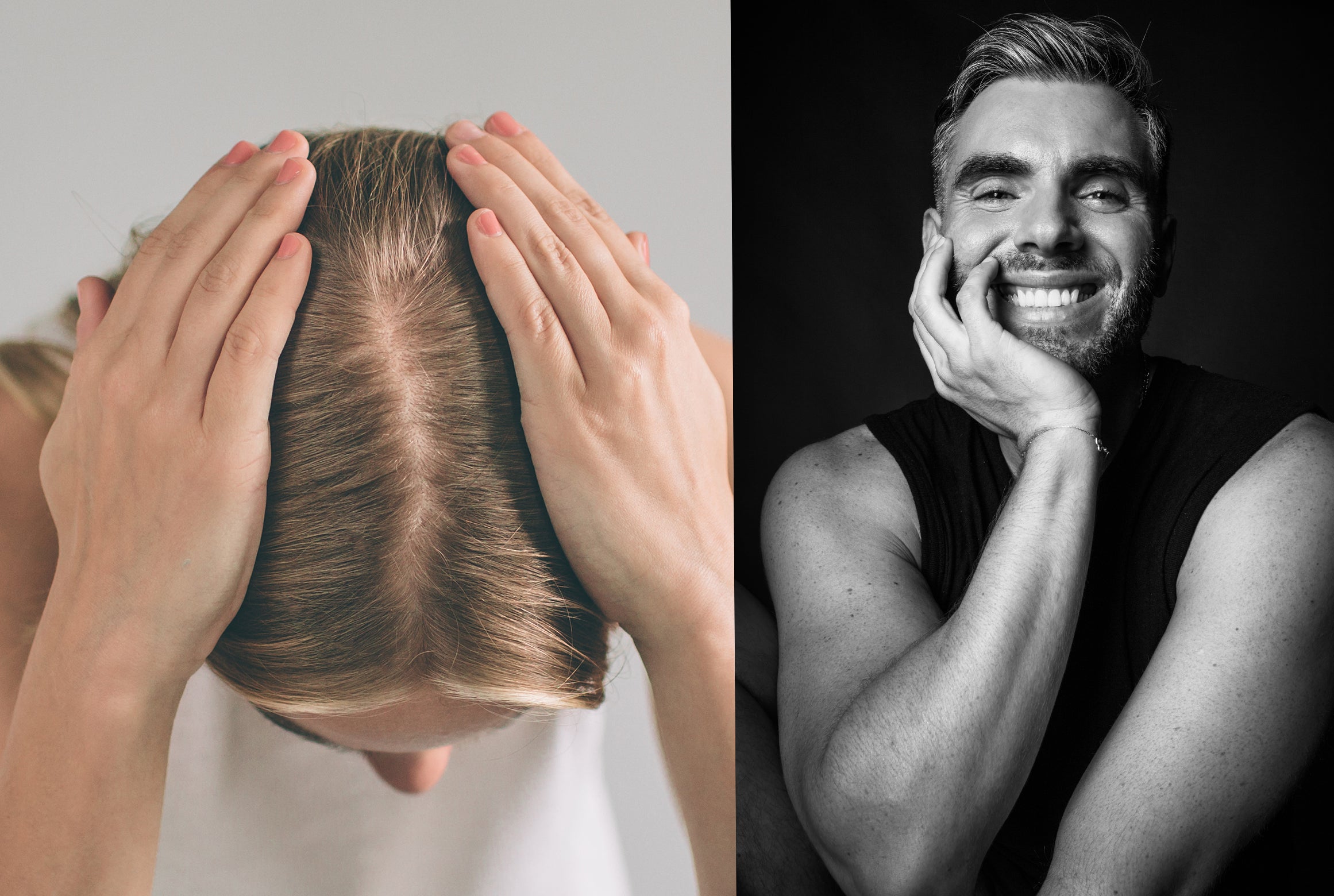What’s the Best Solution for Stress Acne?
“This is in large part due to general stressors, which for some, may include lack of sleep, a rise in cortisol levels, and the release of other hormones that increase sebum production and result in imbalances in the skin,” says Dr. Shamban. “The stress-related hormone CRH, which releases corticotropin, can actually bind to receptors in the sebaceous glands, giving them the green light to go into oil production overdrive.” Stress also affects the nervous system, causing sensory symptoms like itching, which means the compulsion to touch your face may be at an all-time high right now.
Combined with the fact that every hour is happy hour, snacks are always within reach, and many of us have more time to stare into a magnifying mirror doesn’t help matters. “New to the mix are face masks, constant hand washing, and drying disinfecting agents that can irritate the face and body,” adds Dr. Shamban. So, how can you take matters into your own hands (without picking, of course)? The doctor is in and offering up blemish-busting advice to keep your skin in check during quarantine.
Picking is never advised. Wait for a professional, as the potential for scarring and the collateral damage you can create on your own isn’t worth it.
Dr. Ava Shamban
1. Take Advantage of Telemedicine
“Many, if not most of the [aforementioned] conditions, can be easily diagnosed via a telederm visit, so there’s no need to wait for offices to reopen,” says Dr. Shamban. Many doctors are offering virtual house calls, and while they can’t exactly administer a cortisone shot, they can prescribe prescription treatments (like tretinoin) or antibiotics. Your derm can also provide council on your current skincare lineup and set your self-care routine straight.
2. Opt For Over-The-Counter Treatments
Your derm may point out common ingredients that can easily be added to cart online, such as salicylic acid (found in Dr. Loretta’s Micro Exfoliating Cleanser) to unclog pores and retinol to speed up cell turnover over time. Try Zelens Power A Treatment Drops, which contains encapsulated retinol to minimize irritation. “Adapalene is the strongest over-the-counter retinol option,” says Dr. Shamban. “It’s different from other vitamin A derivatives in that it slows the process of hyperkeratinization in the pores, making it a very beneficial acne treatment.” Differin Gel is one option commonly found in most drugstores. If you’re interested in more natural solutions, try spot-treating blemishes with antibacterial tea tree oil or use a clay mask (like Saya’s French Green Clay) to absorb excess sebum. Finally, counteract dryness by reaching for formulas containing niacinamide, ceramides, or hyaluronic acid to balance and moisturize sensitive skin. Ilia’s Super Serum Skin Tint SPF 40 camouflages redness and keeps your complexion hydrated thanks to a blend of plant-based squalane, niacinamide, and hyaluronic acid.

Keep Your Hands Off
Staying cooped up next to your magnifying mirror and analyzing every pore can be tempting, but this is one form of face time you don’t want to indulge in during quarantine. “Picking is never advised,” says Dr. Shamban. “Wait for a professional, as the potential for scarring and the collateral damage you can create on your own isn’t worth it.” If stress and anxiety are amplifying the urge to scratch at your skin, hydrocortisone can offer some relief and minimize inflammation. The same can be said for products containing zinc. For particularly painful pimples, Dr. Shamban recommends creating a paste with crushed aspirin and water to temporarily soothe skin. Ice or a facial roller fresh from the fridge also work wonders on sore spots. Keep acne undercover and fingers off using a hydrocolloid patch like ZitSticka, which uses microdarts to deliver salicylic acid, niacinamide, and hyaluronic acid into the heart of a blemish. To really get to the root of the problem, try the ZIIP, a device that uses nanocurrents and microcurrents to zap acne-causing bacteria.
Cut Down On Sugar
If you count refrigerator runs as exercise these days, you’re not alone. Just make sure you’re reaching for the right snacks. “The standard Western diet contains chemicals, pesticides, and copious amounts of processed foods,” says Dr. Shamban. This is especially true during quarantine when many of us are seeking comfort or a quick fix to satisfy our cravings. The derm recommends skipping processed sugars altogether and boosting your intake of probiotics via a supplement (such as Grown Alchemist’s Probiotic Nutrient Support 9-Strain Flora Probiotic) or foods like kefir and kimchi. As for that well-deserved drink you’ve earned at the end of another dystopian day? Keep it simple and skip sugary mixers (like juice, soda, or tonic water). Cheers to clear skin!
Written by Amber Kallor
More Subject:Matter
Master colorist Denis De Souza is here to calm your DIY fears during quarantine. The memes about the world being three weeks away from seeing everyone’s true hair color have made the rounds and while there’s nothing wrong with allowing nature to take its course, there are many that would rather not reveal what’s under the hood.
Read more

